- Home
- Scott Mariani
The Rebel's Revenge Page 2
The Rebel's Revenge Read online
Page 2
The old timer suddenly registered his customer’s presence and gazed up with watery, pale eyes. ‘Say what, sonny?’ He didn’t appear to possess a single tooth in his mouth.
It had to be thirty years since the last time anyone had called Ben ‘sonny’. Abandoning the fishing talk, which wasn’t his best conversation topic anyway, he asked the old timer what kinds of proper scotch he had for sale. Whisky with a ‘y’ and not an ‘ey’. Ben had never quite managed to develop a taste for bourbon, though in truth he’d drink pretty much anything if pushed. He had to repeat himself twice, as it was now becoming clear that the storekeeper was stone deaf as well as toothless, which probably accounted for the volume of the music.
Finally the old timer got it and directed him to a section of an aisle on the far end of the store. ‘Third aisle right there, walk on down to the bottom. Hope you find what you’re lookin’ for.’ The Cajun accent was more noticeable on him, sounding less Americanised than the younger locals. A sign of the times, no doubt, as the traditional ways and cultures eroded as gradually and surely as Louisiana’s coastal wetlands.
Ben said thanks. The old man frowned and peered at him with the utmost curiosity, as though this blond-haired foreigner were the strangest creature who’d ever stepped inside his store. ‘Say, where you from, podnuh? Ain’t from aroun’ here, that’s for damn sure.’ Ben couldn’t remember the last time he’d been called ‘partner’, either.
‘Long way from home,’ Ben replied.
The old timer cupped a hand behind his ear and craned his wrinkly neck. ‘Whassat?’ They could still be having this conversation come closing time. Hearing aids obviously hadn’t found their way this far south yet. Or maybe the oldster was afraid they’d cramp his style with the girls. Ben just smiled and walked off in search of the section he wanted. The storekeeper gazed after him for a moment and then shrugged and fell back into squinting at his magazine.
Following the directions, Ben soon found the range of scotches at the bottom of the last aisle, tucked away in what seemed a forgotten, seldom-frequented corner of the store judging by the layers of dust on the shelf. He began browsing along the rows of bottles, recognising with pleasure the names of some old friends among them. Knockando, Johnny Walker, Cutty Sark, Glenmorangie and a dozen others – it wasn’t a bad selection, all things considered. Then he spotted the solitary bottle of Laphroaig Quarter Cask single malt, one of his personal favourites for its dark, peaty, smokey flavour.
It had been sitting there so long that the bottle label was flecked with mildew. He took it down from the shelf, wiped off the dust and weighed his discovery appreciatively in his hand, savouring the prospect of taking it back to his hotel room for a couple of hours’ enjoyment before bed. The precious liquid had come a long way from its birthplace on rugged, windswept Islay in Scotland’s Inner Hebrides, for him to stumble across here in Southern Louisiana of all places. Maybe this was something more profound and meaningful than mere serendipity. Enough to make a man of lapsed religious faith start believing again, or almost.
Ben was carrying the bottle back up the aisle as though it were holy water when, over the blare of the music, he heard raised voices coming from the direction of the counter. As he reached the top of the aisle he saw a pair of guys who had just walked in.
One was big and ox-like in a studded motorcycle jacket with a patch on the back showing a gothic-helmeted grinning skull and the legend IRON SPARTANS MC, LOUISIANA. He was slow-moving and wore a calm smile. The other was a foot shorter, wiry and wasted in a denim vest cut-off that bared long, skinny arms with faded blue ink. He was agitated and angry, eyes darting as if he’d snorted a tugrope-sized line of cocaine.
The pair might have been regular customers, but Ben guessed not. Because he was fairly sure that, even in the Deep South, regular customers didn’t generally come storming into a place toting sawn-off pump shotguns and magnum revolvers.
Great.
The armed robbers were too intent on threatening the storekeeper to have noticed that the three of them weren’t alone. Ben retreated quickly out of sight behind the corner of the aisle and peeked through a gap between stacks of Dixie beer cans.
The hefty ox-like guy had the old timer by the throat with one large hand and the muzzle of the sawn-off jammed against his chest in the other. The storekeeper was pale and terrified and looked about to drop dead from heart failure. Meanwhile the small ratty guy tucked his loaded and cocked .357 Smith & Wesson down the front of his jeans, perhaps not the wisest gunhandling move Ben had ever seen, and vaulted over the counter to start rifling through the cash register. He was yelling furiously, ‘Is this all ya got, y’old fuckin’ coot? Where’s the rest of it?’
The old man’s eyes boggled and he seemed unable to speak. The disconcertingly calm guy with the shotgun looked as if he couldn’t wait to blow his victim’s internal organs all over the shop wall. It was hard to tell who was more dangerous, the little angry psycho or the big laid-back one.
Ben puffed his cheeks, thought fuck it, counted to three.
Then he sprang into action.
Six minutes to midnight, but the evening was only just getting started.
Chapter 2
Fourteen hours earlier
It had been Ben’s first visit to Chicago. Now he was sitting in the departure lounge at O’Hare International, counting down the minutes to his flight while gazing through the window at the planes coming and going, and sipping coffee from a paper cup. As machine coffee went, not too terrible. It almost quelled his urge to light up a cigarette from the pack of Gauloises in his leather jacket pocket.
It was a rare thing for Ben to leave his base in rural northern France for anything other than work-related travel, whether to do with running the Le Val Tactical Training Centre that he co-owned with his business partner Jeff Dekker or for the other, more risky kinds of business that sometimes called him away. But when the chance had come to snatch a few free days out of Le Val’s hectic schedule and with no other pressing matters or life-threatening emergencies to attend to, Ben had seized the opportunity to jump on a plane and cross the Atlantic. His mission: to pay a visit to his son, plus one more objective he was yet to meet.
They hadn’t seen each other in a few months, since Jude’s somewhat rootless and meandering life path had led him to relocate from England to the US to be with his new girlfriend, Rae Lee. Ben knew all about rootless and meandering from past personal experience, and while he accepted that it was fairly normal for a young guy in his early twenties to take a few years before finding his feet in life, he worried that Jude had too much of his father’s restless ways about him.
It was Ben’s greatest wish that Jude could instead have taken more after the saintly, patient and selflessly loving man who raised him as his own son all those years when the kid’s real dad was off merrily raising hell in some or other war-ravaged corner of the globe.
Every time Ben reflected on that complicated history, he felt the same pangs of heartache. Years after the event, the deaths of Jude’s mother and stepfather, Michaela and Simeon Arundel, were a wound that would always remain raw. The subject was never discussed between them, but Ben knew the young man felt the pain just as keenly as he did.
Rae was a couple of years older than Jude, the only daughter of a wealthy Taiwanese-American family, and occupied a nice apartment in Chicago’s Far North Side overlooking Sheridan Park, where Ben had stayed with them for only one day before feeling it was time to move on. The brevity of his visit might have seemed unusual to more family-orientated folks, but Ben’s and Jude’s was not a normal father–son relationship and Ben was anxious not to overstay his welcome.
Ben got on cordially with Rae and liked her well enough, but wasn’t completely sure that she was right for Jude. Jeff Dekker, never one to mince words, regarded her as a busybody and a do-gooder – and there was some truth in that. She was a freelance investigative journalist with multiple axes to grind over anything she considered worth protesting abou
t, and seemed to be pulling Jude deeper into her world of political activism despite the fact that he’d never hitherto expressed the slightest interest in politics or causes of any kind. They’d met during one of her trips to Africa to expose the human rights abuses of the coltan mining industry. A trip that had achieved nothing except very nearly lead her to a gruesome end, and Jude with her.
Having had to come to the rescue on that memorable occasion, Ben worried that the next idealistic crusade might turn out to be one from which nobody, not even a crew of ex-Special Forces and regular army veterans ready to do whatever it took, could save them.
Still, if Jude was happy, which he seemed to be, Ben could wish for no more; and even if Jude weren’t happy it was none of Ben’s business to interfere in his grown-up son’s personal affairs. He had said his goodbyes and left with mixed emotions, sorry that he wouldn’t see Jude again for a while, yet quietly relieved to get away. Now here he sat, waiting for another plane – but he wasn’t planning on heading home to France just yet.
At last, Ben’s flight was called, and a couple of hours later they were touching down at Louis Armstrong International Airport in New Orleans. Which struck Ben as tying in very well with his other reason for being in the States.
As a dedicated jazz enthusiast, albeit one who was incapable of producing a single note on any instrument yet invented, Ben had for many years been a fan of the venerable tenor saxophonist Woody McCoy. Now pushing eighty-seven, McCoy was one of the last of the greats. He’d never achieved the stardom he deserved in his own right, but had played with some of the most iconic names in the business: Bird, Monk, ’Trane, Miles, and Art Blakey’s Jazz Messengers, to list but a few.
Now at long last, after a career spanning six decades, the man, the legend, was hanging up his spurs. But doing it in fine style, taking his Woody McCoy Quintet on a farewell tour all up and down the country. A few weeks earlier, Ben had seen the announcement that Woody was due to perform his last-ever gig in his home town of Villeneuve, deep in the rural heart of South Louisiana, in mid-September.
When the opportunity had arisen to free up the date in his work schedule, and with Jeff’s insistent ‘Go on, mate, you know you want to’ in his ear, Ben had decided that this last-ever chance to hear Woody McCoy play live was not to be missed. He almost never allowed himself such indulgences. But he’d allow himself this one, as a special treat.
Now that he’d cut his stay in Chicago a little shorter than planned, it meant he had a couple of days to explore Woody McCoy’s birthplace, sample the local culture, relax and take it easy.
Ben stepped off the plane in New Orleans and found himself in a different world. Welcome to Planet Louisiana. Though over the years he’d visited more places than he could easily count, his past travels around the US had been limited. He’d been to New York City, toured the coastline of Martha’s Vineyard, spent some time in the rugged hills of Montana, and had a brief sojourn in the wide open spaces of Oklahoma. But he’d never ventured this far south, and had only a vague idea of what to expect.
The first thing that hit him was the humidity. It was so thick and cloying that for a moment he thought he must have fallen down a wormhole in the space-time continuum and found himself back in the tropical furnace of Brunei redoing his SAS jungle training.
He cleared security, strolled through the hellish heat over to the nearest car rental place with his new green canvas haversack on his shoulder and was happy to find that the near-blanket blacklist that bugged him in many other countries didn’t seem to apply here. For some reason, the likes of Europcar, Hertz and Avis objected to his custom on the grounds that their vehicles never came back in one piece, occasionally in several, and other times not at all. But the pleasant young lady at Enterprise breezed through the paperwork and handed him the keys to a gleaming new Chevy Tahoe SUV with a smile like warm honey and a ‘Y’all have a good day, now’ that was Ben’s first introduction to a real-life Southern accent.
The airport lay eleven miles west of downtown New Orleans, amid one of the flattest and most panoramic landscapes Ben had seen outside of the Sahara. He opened all the windows, lit a long-awaited Gauloise with his trusty Zippo lighter, which the airport security guys had scrutinised as though it were an M67 fragmentation grenade, and headed north-west for the South Central Plains with the wind blasting around him and a four-hour drive ahead. He intended to enjoy every minute of his freedom.
Ben Hope was an unusually skilled and capable man who claimed little credit for his many gifts. One he lacked, however, in common with most people, was the gift of prophecy. If by some strange intuition he’d been able to foretell what lay in store for him at the end of the long, hot road, he would have pulled a U-turn right across the highway and jumped straight onto the next plane bound for France.
Instead, he just kept on going.
But that’s what happens when you have a talent for trouble.
Chapter 3
For the next few hours, Ben drove beneath a sky burned pale by the sun. Trying to dial up a jazz station on the radio, he found only country music of the croony, schmaltzy variety with pedal steel guitars that sounded like cats yowling. It was either that, or the radio evangelists fulminating against the state of the modern world, or silence.
He chose silence, and eased back in his seat, steering the big comfortable Tahoe with two fingers as he worked his way through a pack of Gauloises and drank in his surroundings. The highway carved relentlessly onwards through the flat landscape, passing cane fields and sugar processing plants and oil refineries. It didn’t take much travelling through Louisiana to tell what the big industries were around here.
Deeper into country, the terrain was crisscrossed with bayous, waterways so sluggish and rimed with green slime that they appeared stagnant. He passed various settlements, a lot of them nothing but rag-tag clusters of dilapidated shacks along the edges of the bayous, where river folks dwelled and scraped their living off the water and raggedy little kids helped their fathers man flat-bottomed boats heavy with nets and lobster traps.
Third World poverty in the richest country on the planet. Maybe Rae Lee should come down here and check it out.
To a visitor from overcrowded Europe, the most vivid impression this landscape conveyed was of the sheer scale of its hugeness. Not even Montana and Oklahoma had seemed so spread-out and vast. The city of Shreveport lay a hundred miles to the north of his destination. Highway 84 connected Villeneuve to faraway Natchez, Mississippi to the east and Lufkin, Texas to the west. A whole different America to the one he’d experienced before. Especially as nobody was trying to kill him this time around.
Ben had done a little reading ahead of his journey to try and get a sense of Woody McCoy’s birthplace, its geography, its history and culture. Where most other North American states had counties, Louisiana divided itself instead into sixty-seven parishes, of which Clovis Parish was one of the smallest with a population of just over nine thousand spread over six hundred square miles of land that comprised mostly lake and bayou, swamp and forest. Woody’s home town of Villeneuve was the parish seat, historically best known for having been burned to the ground by Union troops during the 1864 Red River campaign of the American Civil War.
Long before the fledgling nation had decided to start ripping itself apart, this area had passed through the hands of various European colonists. First the French had come, back in the 1500s, and laid claim to the territory of Louisiane as part of what they dubbed ‘New France’, a vast tract of land that stretched from the Mississippi to the Rocky Mountains and encompassed bits of Canada and fifteen modern-day US states. After a couple of centuries of imposing their language, repressing the ‘heathen savages’ from whom they had wrested the land and shipping in countless thousands of African slaves to work on their plantations in the South, the French rulers had suffered a drubbing in the bloody and brutal French and Indian War and, in 1763, King Louis XV had been forced to cede his prize to the Spanish and British, who promptly set abou
t forcing their own ways on their newly acquired colonial subjects. Napoleon Bonaparte had snatched back Spain’s land possessions in 1800 with a beady eye on re-establishing a lucrative French North American Empire, only to sell it all off again to the recently established United States in 1803, who had just a few years earlier kicked their British masters back into the sea and had their own ideas about developing their young nation.
The so-called ‘Louisiana Purchase’, a deal worth an eye-popping $15 million at the time, had formally ended France’s colonial presence and, at a stroke, radically expanded US territory by almost a million square miles to make it the third largest country in the world. Whereupon, less than sixty years later, the brave and bright new nation descended into a tragic civil war that turned neighbour against neighbour, brother against brother, ravaged the land from coast to coast and top to bottom, left as many as 750,000 of its citizens lying dead on its scorched battlefields and among the ruins of its levelled cities, and scarred the identity of the United States more profoundly than any other conflict before or since.
Such was, and always would be, the nature of human civilisation.
As for modern-day Louisiana, the result of so many centuries of ever-changing colonial ownership was a colourful blend of French, Spanish, African, Creole and Indian influences. Acadian settlers who had landed here from France by way of Canada added to the mixture, their descendants later to become known as ‘Cajuns’, forming a core part of this rich, multi-faceted culture rooted in so much dramatic history. Predictably enough, a glance at the map showed French names popping up everywhere. Villeneuve being just one of them, within a parish named after an ancient Frankish king. Many older Cajun folks still spoke their own form of French as a first language, although that tradition was slowly dying out.
The more Ben had read up on the background, the more he could see that he was going to have to abandon whatever preconceptions he might have previously had about this part of the Deep South. Here was a fascinating and unique place, and he was looking forward to learning more about it – almost as much as the bittersweet prospect of attending the Woody McCoy Quintet’s farewell performance two days from now.

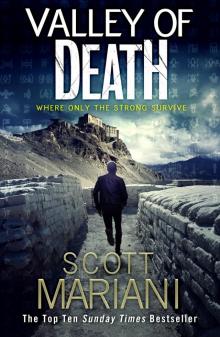 Valley of Death
Valley of Death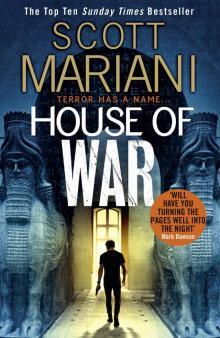 House of War
House of War The Pandemic Plot
The Pandemic Plot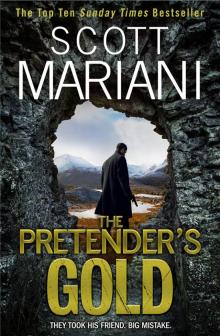 The Pretender's Gold
The Pretender's Gold The Demon Club
The Demon Club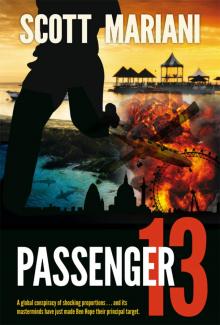 Passenger 13 (Ben Hope eBook originals)
Passenger 13 (Ben Hope eBook originals)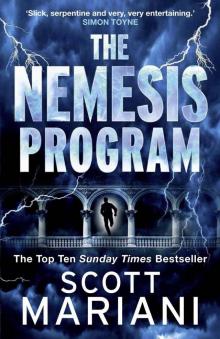 The Nemesis Program_Ben Hope
The Nemesis Program_Ben Hope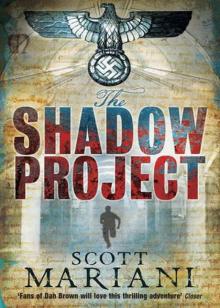 The Shadow Project
The Shadow Project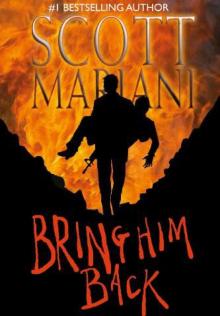 Bring Him Back
Bring Him Back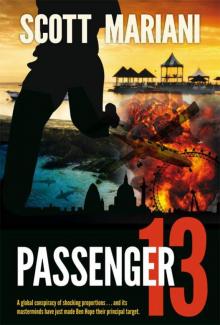 Passenger 13
Passenger 13 Sacred Sword (Ben Hope 7)
Sacred Sword (Ben Hope 7)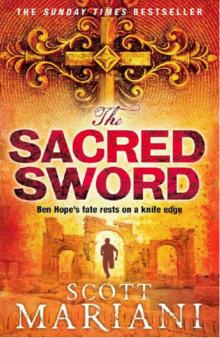 The Sacred Sword (Ben Hope 7)
The Sacred Sword (Ben Hope 7)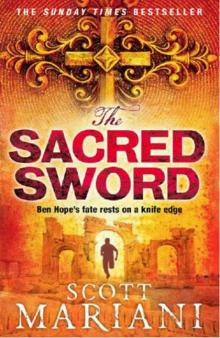 Sacred Sword
Sacred Sword The Babylon Idol
The Babylon Idol The Armada Legacy
The Armada Legacy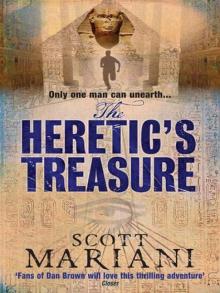 The Heretic's Treasure
The Heretic's Treasure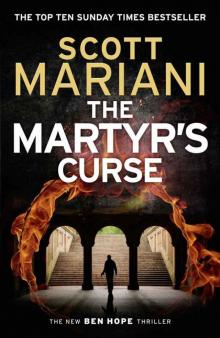 The Martyr’s Curse
The Martyr’s Curse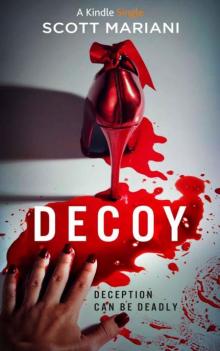 DECOY (Kindle Single)
DECOY (Kindle Single) The Bach Manuscript
The Bach Manuscript The Alchemist's Secret
The Alchemist's Secret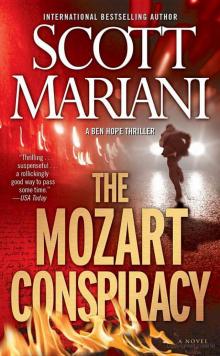 The Mozart Conspiracy: A Novel bh-2
The Mozart Conspiracy: A Novel bh-2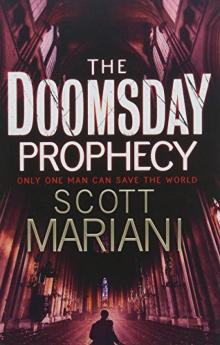 The Doomsday Prophecy
The Doomsday Prophecy The Ben Hope Collection: 6 BOOK SET
The Ben Hope Collection: 6 BOOK SET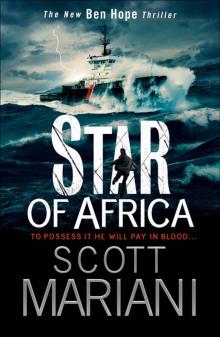 Star of Africa (Ben Hope, Book 13)
Star of Africa (Ben Hope, Book 13)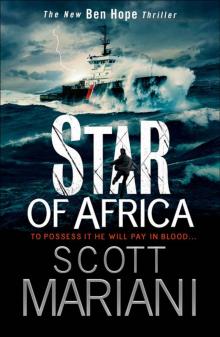 Star of Africa
Star of Africa The Forgotten Holocaust (Ben Hope, Book 10)
The Forgotten Holocaust (Ben Hope, Book 10) The Devil's Kingdom
The Devil's Kingdom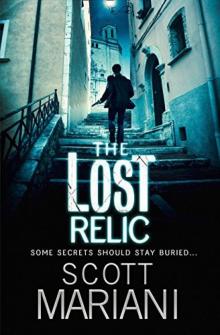 The Lost Relic
The Lost Relic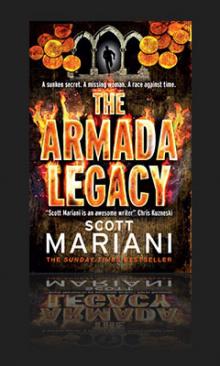 The Armada Legacy bh-8
The Armada Legacy bh-8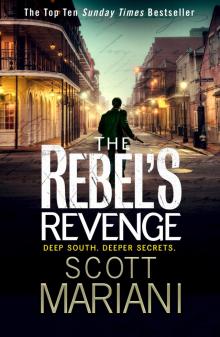 The Rebel's Revenge
The Rebel's Revenge The Forgotten Holocaust
The Forgotten Holocaust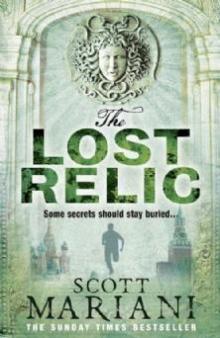 The Lost Relic bh-6
The Lost Relic bh-6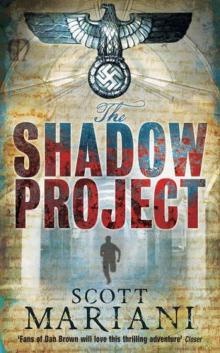 Ben Hope 05 - The Shadow Project
Ben Hope 05 - The Shadow Project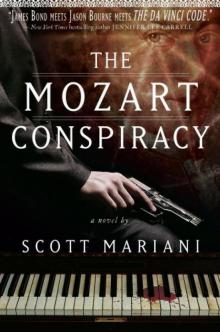 The Mozart Conspiracy
The Mozart Conspiracy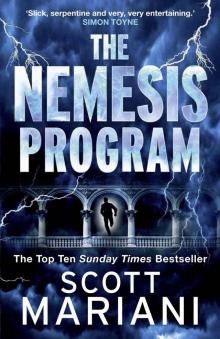 The Nemesis Program
The Nemesis Program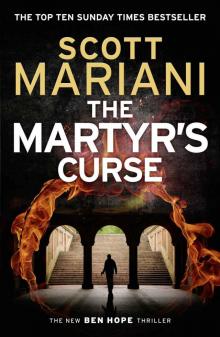 The Martyr’s Curse (Ben Hope, Book 11)
The Martyr’s Curse (Ben Hope, Book 11) THE TUNNEL: A Ben Hope Story
THE TUNNEL: A Ben Hope Story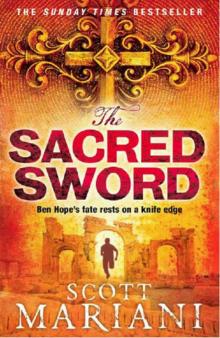 The Sacred Sword bh-7
The Sacred Sword bh-7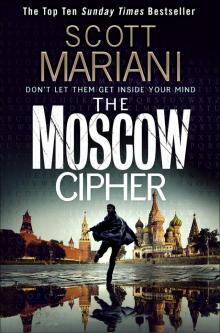 The Moscow Cipher
The Moscow Cipher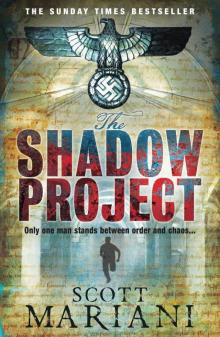 The Shadow Project bh-5
The Shadow Project bh-5 The Tunnel
The Tunnel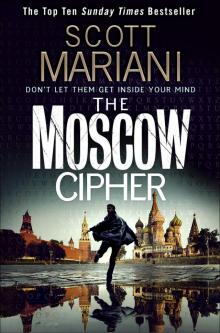 The Moscow Cipher (Ben Hope, Book 17)
The Moscow Cipher (Ben Hope, Book 17)